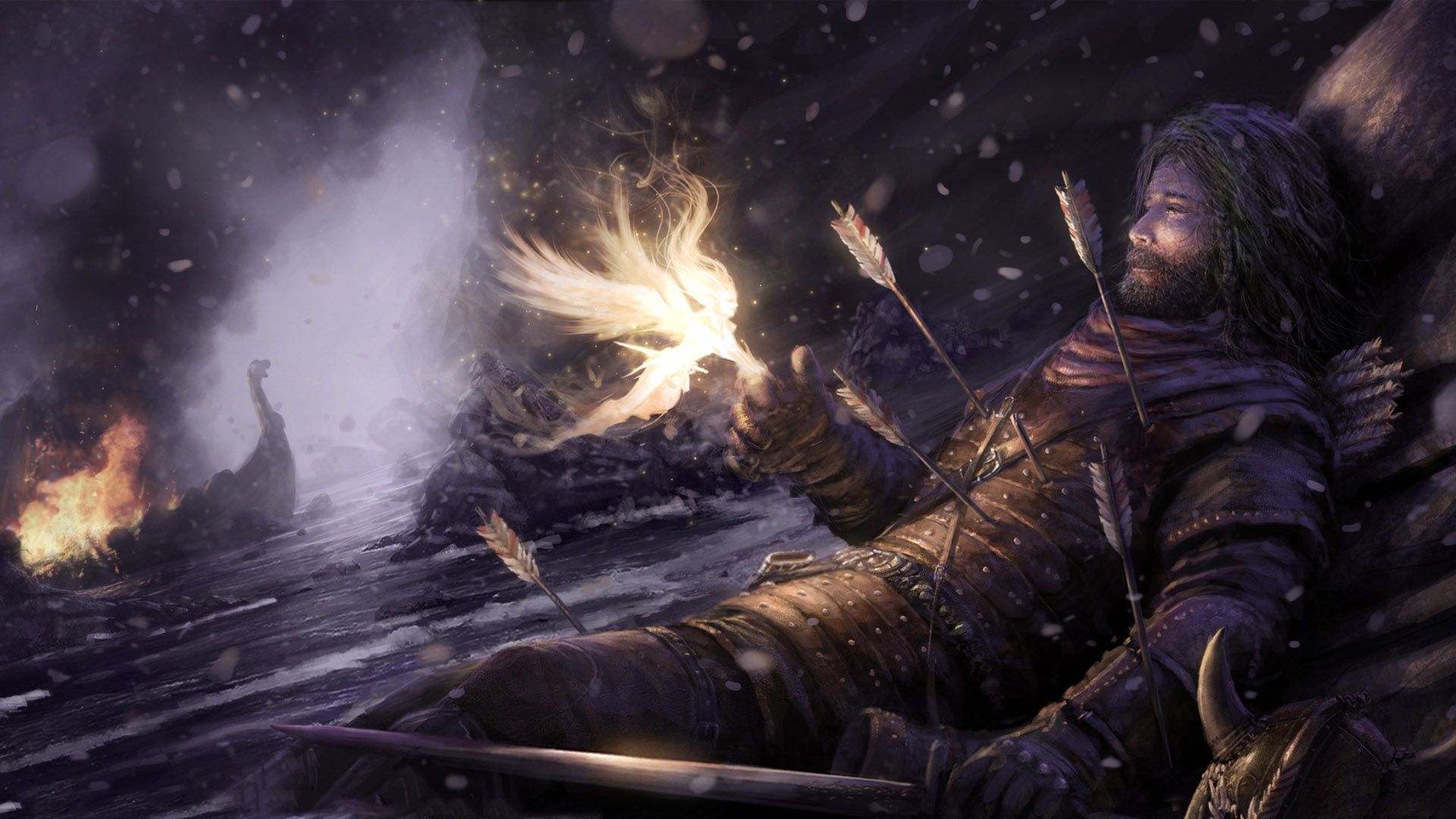
Babes Campaign
It’s a dangerous business, Frodo, going out your door. You step onto the road, and if you don’t keep your feet, there’s no knowing where you might be swept off to.
Adventure Overview
As you read this preface, please note that the campaign is subject to change based on your feedback! A survey will follow to gather your opinions. This campaign will likely feature two highly-rated published adventures, Curse of Strahd and Waterdeep: Dragon Heist. Please do not Google anything about them. The two adventures are lightly described later. There will also be some downtime between these adventures for your characters to get a little vacay time. After completing the first adventure which will take roughly a couple of months, we can evaluate if we want to take the long trek through the yearlong journey that is Curse of Strahd.
Combat vs. Roleplay
Playing D&D can typically be divided into two major parts: combat and roleplaying. Combat tends to contain more board game like elements with well-defined rules and options. Roleplay is more open ended and better resembles improv or acting. However, both parts still share elements of the other. Both adventures contain a little more roleplay than combat, about a 70/30 split. Please let me know if you think a different ratio fits your play style better!
Types of Roleplaying
To fully enjoy the game, you should try roleplaying but note there are two main roleplaying styles: active and descriptive. When you use active roleplaying, you speak with your character’s voice, like an actor taking on a role. This approach is more immersive. (Speaking as Tordek, Chris says in a gruff, deep voice, “If I wanted to hear anything out of you, I'd snap your arm and enjoy your screams.”) On the other hand with the descriptive approach, you describe your character’s words and actions in third person. While less immersive, it's simpler, efficient and may be more comfortable. (Chris says, “Tordek spits on the floor, growls an insult at the bard, and stomps over to the bar.) Normally a mix is best but try whatever works for you!
Tone: Comedy vs. Seriousness
Some campaigns have a light-hearted comedic tone while others take on a more serious one. Our campaign will have a mix of both. Comedy will take center stage with a 70/30 split. Even the horror in Curse of Strahd will need comedy to balance it. On the other hand, there will be epic, horrific, sincere, sad and sweet moments but feel free to add comedy to balance them! The DM will try to convey if a situation has high stakes and a more serious approach might be more suitable.
Waterdeep: Dragon Heist
This adventure takes place in Waterdeep, the City of Splendor! A hustling and bustling metropolis. Imagine the New York City of fantasy. As you make your way through Waterdeep’s many wonders and seedy underbelly you will soon face a L.A. Noire style quest of intrigue and chicanery.
Cons
However, the adventure is relatively short. (But this may be a great way to test the waters.) There are many locations and NPCs which can be overwhelming and dilute the main story. Finally, most of the story takes place in the city with little dungeon crawling or wildness survival.
Pros
On the flip side, staying in this one metropolis will hopefully establish a sense of belonging. The adventure also introduces a great base of operations for the party. It will give you an immersive home to return to after your other adventures. The detective storyline is also a breath of fresh air from typical adventures. Lastly it's Waterdeep! Almost all the themes and wonders of classic fantasy adventure can be found within its diverse walls.



















Curse of Strahd
Curse of Strahd is a vivid exploration of classic gothic horror tropes and monsters, from werewolves to vampires, ghosts, and more. It is an unabashedly sandbox character-driven campaign, giving your player character an incredible chance to shine and make their mark on the story your group tells. It also features a well-developed villain that will develop a complex relationship with the party.
Cons
However, Curse of Strahd is also a brutal, stressful, and alienating experience. Your character will be trapped in a bleak, gothic land quite different from Waterdeep. The adventure contains several encounters and areas that will likely be far beyond your capabilities when you first encounter them. It does not provide routine or readily-available loot or magical items.
If you want the freedom to engage in combat and exploration without worrying about the potential risks, this is very possibly not the campaign for you. The adventure is not extremely punishing but it is not a cakewalk either. If you prefer a D&D campaign that features only victories or setbacks (rather than the potential for outright defeat), you might want to try a different module.
Curse of Strahd, as-written, is full of disturbing and graphic content. If you are potentially triggered by elements of child abuse, murder, stalking, gaslighting, racism, torture, mind control, cannibalism, situations paralleling sexual assault, child death, references to stillbirth/miscarriage, abuse of those with disabilities or mental illness, animal cruelty, body horror, child abandonment, portrayals of alcoholism or drug abuse, potential incest, implied necrophilia, or suicide, speak with your DM about potentially working around or entirely avoiding these elements.
Pros
Now, if you’re still around, stick with me - because there are reasons to play this (engaging, incredibly memorable) campaign. You should play Curse of Strahd if you:
- love gothic horror tropes and themes
- want to engage with a character-driven story that pushes you to develop relationships with multiple vivid NPCs and factions
- prefer roleplay, investigation, and relationship-building to combat or dungeon-delving
- enjoy setting your own goals and pursuing means of achieving them
- enjoy facing an active, powerful, and personally antagonizing villain that will develop a complex interaction with the party
- want to participate in a tense, adrenaline-fueled experience that will create memories to last a lifetime
Rules and Tips
Now that we have established what the adventures entail and what to expect, lets set some guidelines so that we can ensure everyone can have fun!
Player Expectations
There a couple of things this campaign assumes about players to tell a fun story:
Cooperation
Players should be cooperative (at least with each other). If players turn on the party the story will quickly unravel as there will be less and less reasons to travel with each other. In this regard, please refrain from robbing or harming each other out of malice. (Though there could be scenarios where you would rob or harm each other in helpful ways.) Generally, try to have each party members best interest in mind and be considerate of their opinions, abilities and feelings.
Immersion
Players should be immersed. Since this campaign relies on roleplaying, not being immersed would generally bring down the vibe of the game. Try to avoid distractions like simultaneously playing a video game or even surfing the web on your phone. Also try to avoid off-topic discussions and metagaming. Instead try to focus on the game and make sure you are aware of the changing story and prepared to take your turn. The more we “stay in character”, the more the campaign becomes alive and immersive. Lastly, remember the DM will not be min-maxing or metagaming against your characters. Brainless undead will attack the closest party members not the best targets (smart NPCs will employ advanced tactics). The goal of the game is to have fun not necessarily win. Mistakes are okay and can be really amusing. Try not to min-max the fun out of the game.
Rules
The campaign rules will be based on all 5e core and supplemental rulebooks by Wizards. You do not need to read any of them. We will go over the rules as we play. You can create your characters from using any of these books. Note that the DM will try to follow these rules but if a conflict over rules should arrive the DM can set the rule and resolve the conflict outside of game time so that the story may continue.
Specific Rule Changes
I’ve implemented a couple of rule changes to balance the game right off the bat. There may be additional rule changes as needed.
- We will play with all of Tasha's optional rules including flexible races. Ability bonuses from races can be shuffled around so pick any race you want not just the race that fits
- Spells, classes and subclasses may be buffed to bring them in line with other spells and abilities. I want to encourage diversity so pick what sounds fun and if it's underwhelming I will buff it so that its useful.
- Combat turns will be limited to loosely one minute and strategizing with other players during turns should be limited to one sentence to speed up combat. If you need more time to think, the next character will take its turn to give you more time.
- The spell healing spirit can only heal within combat. Without this nerf, this spell would make all other healing choices pointless.
- Monks may only use stunning strike once a turn. Currently, monks can stun either four creatures in a single turn or attempt to stun one creature four times. This can make some epic battles kind of disappointing as the enemy will be unable to even take a single turn before the party triumphs.
Tips
Lastly, I wanted to leave you all with some tips for players in this campaign:
Intrepid adventurers and sadistic murderhobos don’t last long in Waterdeep or Barovia. Don’t alienate or antagonize NPCs if you can avoid it. Make more friends than enemies.
Remember that you are not your character, and invest real time in developing their thoughts, personality, and motivation. Externalize failure, and use setbacks or defeat as an opportunity to explore your character’s perspective and personal growth.
Play smart. Many of the enemies in this adventure cannot be overcome easily in direct combat. Use guile, preparation, subterfuge, diplomacy, and research to achieve your goals.
Spend time engaging with the other characters, even when not discussing plans, tactics, or objectives. Learn about their fears, their perspectives, and their experiences. Build meaningful relationships, not apathetic battle teams.
Try to remove yourself from the “XP and loot” model of progression in traditional campaigns and video games, and instead try to enjoy the narrative progression of winning allies, fulfilling objectives, and advancing the story of the campaign and player characters.
Don't try to play an apathetic or evil player character unless you are 100% sure that you can pull it off while being a supportive team player and engaging the story like a normal PC. You could make this adventure a lot more difficult and unenjoyable, and you'll be cheating yourself out of a fun experience. You don't need to play a knight in shining armor, but you definitely shouldn't play a villain.
Character Backstories
To help with incorporating these tips, we will likely have at least one session to work on backstories for your characters going through Xanather's guide to flesh them out. This will go through questions like do you know your parents, how is your marriage and how cozy is your hometown.
Techinical Details
Finally, I wanted to go over some technical details about the campaign like how often we should play and what programs will we use.
Fantasy Grounds
We will be using the program Fantasy Grounds Unity to play. (Discord will also be used to communicate.) There is no cost to players. (I have an ultimate license so everyone else can play for free.) All that will be required is installation of the program and the creation of an account. Fantasy Grounds will automate a lot of the mundane aspects of D&D. Characters will be built inside the program. It will also allow players to see images and maps easily. We will used grid based combat instead of theater of the mind. (Character positions in the world will be kept tracked of with tokens instead of with our imaginations.) This is because Fantasy Grounds has great features for grid-based combat like vision, targeting and lighting. No need to learn how to use the program. We will go over how to use it as we play!
Frequency of Play
We are aiming for a session every two weeks. If there is a cancellation it is highly recommended that we reschedule to avoid lack of play for a month and forgetting the storyline.
Useful Links


Thank You
For Reading
Thanks guys for reading this preface. I hope it sets your expectations in line for this campaign. It's a little intense but I kinda want to do a high production value campaign. I feel like the more work I put in the more fun it will be!
I hope to get the survey sent out soon and I'm looking forward to receiving feedback!
The next pdf will be an overview of character classes to help you all pick the class that will be the most fun for you!